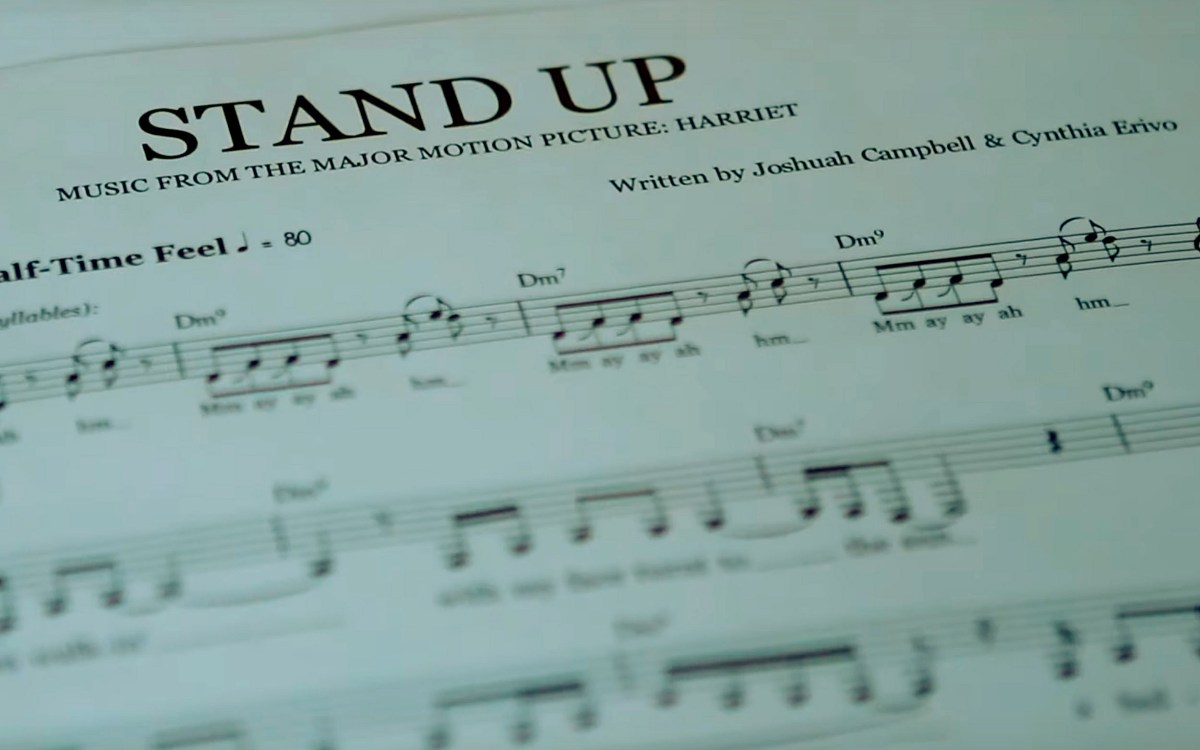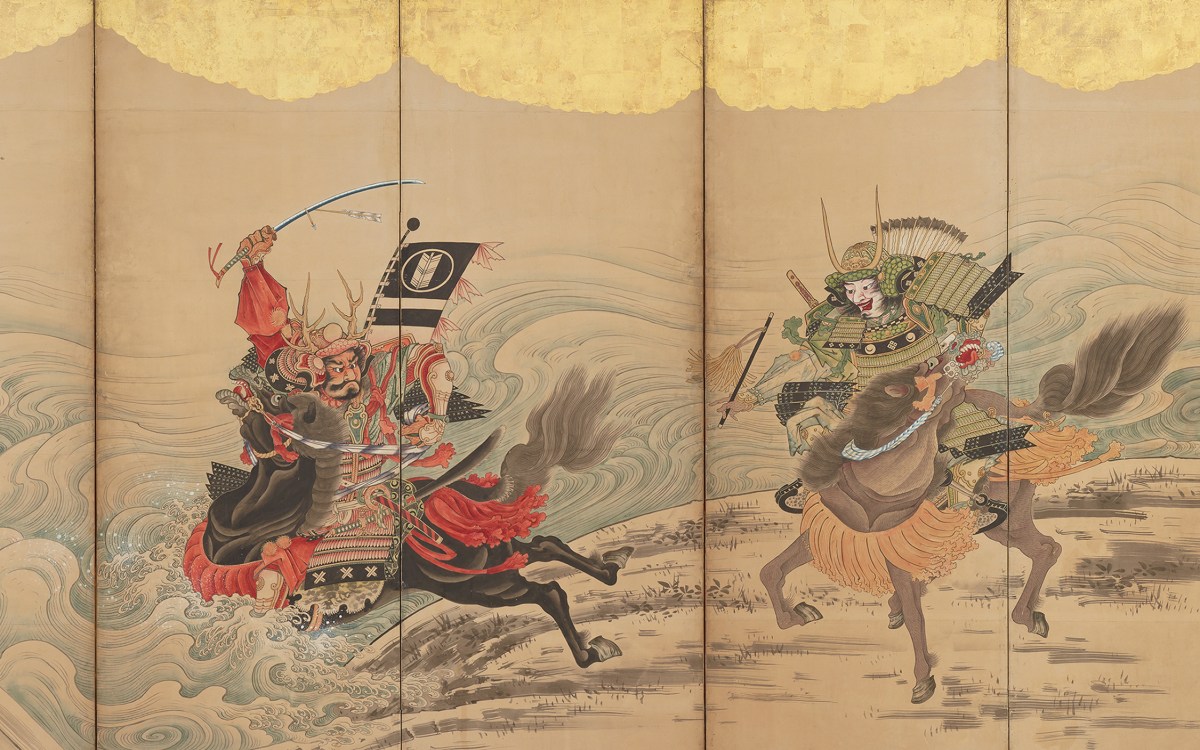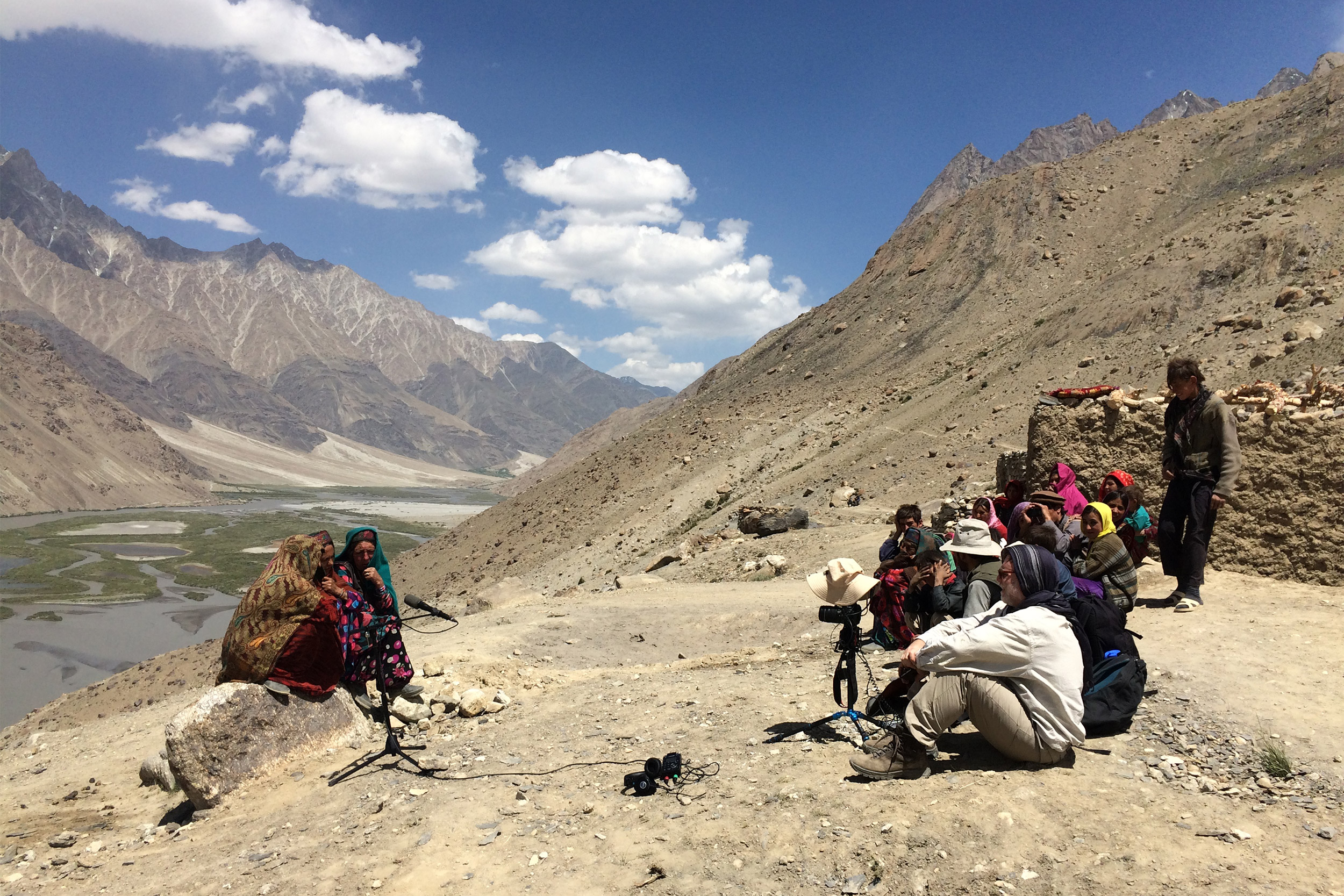
Richard Wolf and villagers recording Wakhi women singing “bulbulik.” Ayloq (upper pasture) above Yur village, Upper Wakhan, Afghanistan, July 2016.
Photo by Katherine Freeze
‘Two Poets and a River’: Worlds of love in the Wakhan Valley
Filmmaker and ethnomusicologist Richard Wolf explores the meaning of a river between countries
On opposite sides of the Oxus River border between Tajikistan and Afghanistan live two poet-singers who share a common language, faith, and family network, and yet remain separated by vicissitudes of the Great Game, the 19th-century conflict between the British Empire and Czarist Russia. Ethnomusicologist Richard Wolf has been contemplating the rupture that exists across this divide in “Two Poets and a River,” a film in progress about poet-singers Qurbonsho in Tajikistan and Daulatsho in Afghanistan.
Wolf, a professor in music and South Asian studies, has a longstanding curiosity about Central Asian people and music, but his research efforts began in earnest on a Fulbright Fellowship to Tajikistan in 2012.
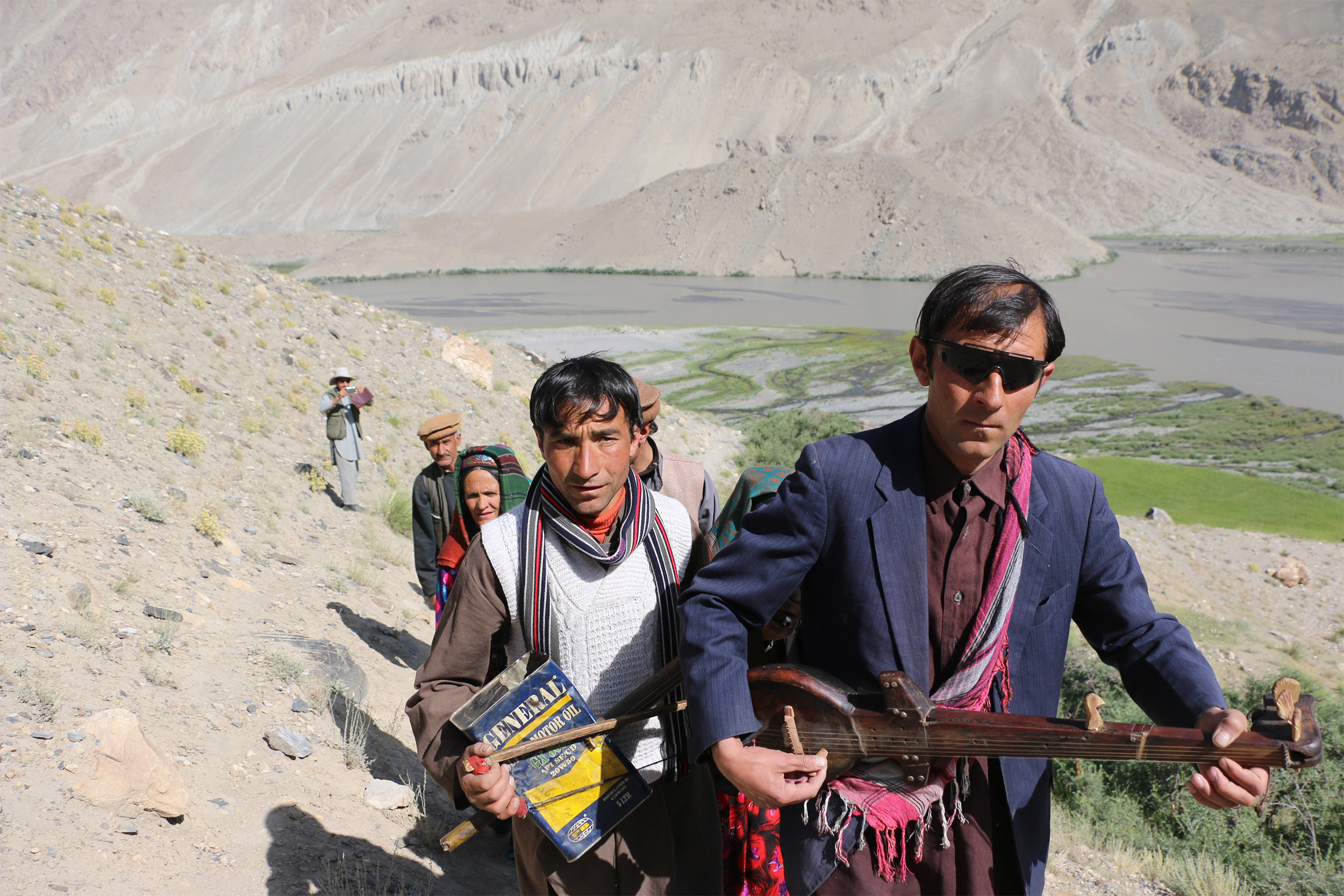
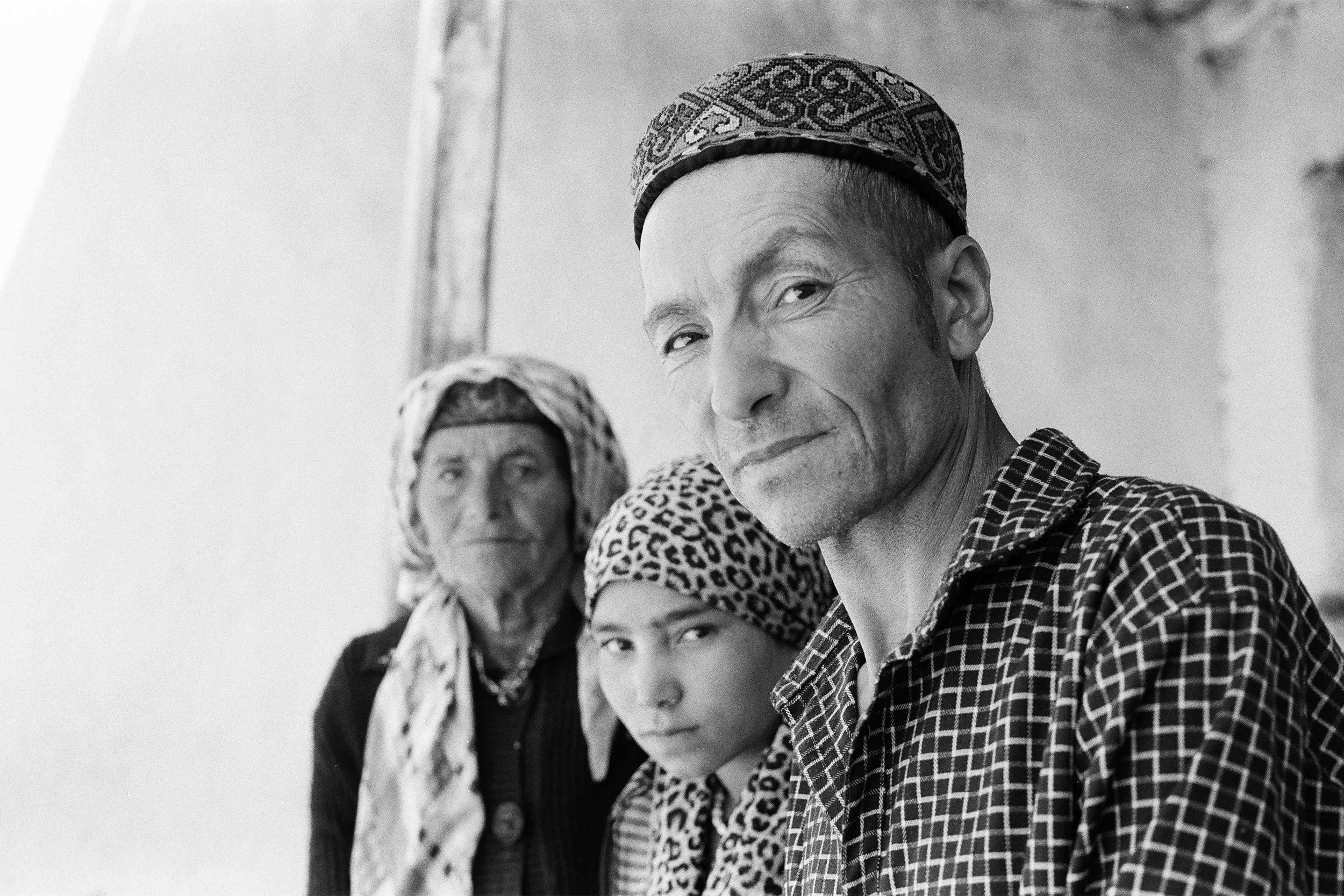
Daulatsho, Yarqub and others playing their instruments and singing as they climb from Yur village to the ayloq (upper pasture). Upper Wakhan, Afghanistan, July 2016. Qurbonsho sitting beside his daughter and aunt in front of his ancestral home. Vrang, Ishkoshim district, Tajikistan, July 2018.
Photos by Richard K. Wolf
“I went to Central Asia to work on Wakhi music and soon came to know of Qurbonsho, a poet-singer who lives on the Tajik side of the river,” he said. “I was always curious about the Wakhis living on the Afghan side, but in 2012–13, as a Fulbright scholar, I wasn’t allowed to cross into Afghanistan.”
The border had been negotiated long ago by Britain and Russia, and Wolf was intent on crossing it, but the effort took years. In 2015, he returned to Tajikistan with names of Wakhi poets, musicians, and their villages in hand. He and his small team drove for several days until the road came to an abrupt end: Melting snow had descended in torrents off the mountaintops and washed out the road and many settlements. Wolf and his companions were forced to continue into Upper Wakhan by foot, yak, and donkey. In village after village, he would hear of Daulatsho, who seemed to be everyone’s teacher as well as the composer of most modern Wakhi songs. Wolf arrived at Daulatsho’s village of Yur (alt. 10,500 ft) only to find that the musician had retreated to the higher pastures where Wakhis graze their cattle in the summer months. The poet-singer finds much creative inspiration in the high mountain flowers, fields, rocks, and rushing water.
“I left word that I’d return the next year. In July 2016, Daulatsho was ready for me and set me up in a one-room house. But I didn’t get much of a chance to see what was going on in the village. So I proposed making a film in order to have an excuse to see more of the village,” he said.
Wolf had used other formats to present scholarly material before — his 2014 book, “The Voice in the Drum: Music, Language, and Emotion in Islamicate South Asia,” was a work of creative nonfiction based on 30 years of fieldwork in India and Pakistan. He had been thinking about using a film to create a sequel, but his current research in Central Asia led him to postpone that plan.
“Two Poets and a River” took shape over the next several years and has been shown in the U.S. and Europe as a work in progress. Wolf traces the poets’ contemplations on separation, family, and environment, as well as their imaginings about what lies on the other side of the border. The two singers knew of one another by reputation and through recordings Wolf had made, but they had never met. In the winter of 2018–19, stranded with Daulatsho not far from the border because an enormous truck had broken down and blocked the road, Wolf realized he was close enough to pick up a cellphone signal from Tajikistan. He called Qurbonsho, and the two poets spoke to each other for the first time.
“The life experiences of these two musicians differ significantly,” Wolf said. “Qurbonsho studied in Soviet schools near his house and served as a construction worker for the army; Daulatsho had to relocate to the district center. He has crossed the border into nearby Pakistan but for the most part stays in Wakhan. Qurbonsho lives on what he makes from performing at weddings, but no one can afford to pay Daulatsho for his performances — rather he survives on his meager monthly salary as a schoolteacher. Distances that can be covered in hours on the Tajik side may take days on the Afghan side. Wakhis from Tajikistan see in Afghan Wakhis images of themselves 50 years ago. Afghan Wakhis see in their Tajik counterparts a measure of freedom and wealth.
Composed in the Wakhi language by Qurbonsho and played on the rubob.
transcript
Transcript:
Without you, what use is the world to me?
Food, wine, intoxication—even the sound of my voice.
Night and day I’m immersed in the pain of your love.
Lucky is the person without sadness or worry.
“But as I worked with each of these musicians I found many similarities. They share common lifeways of pastoralism, house construction, and food. Their musical poetry is based on themes common to the Persianate world. The quintessentially Wakhi song of separation, bulbulik [nightingale], inspires the art of both poets with its sparse, three-line structure. Daulatsho’s Afghan Wakhi poems tend to be lengthy but use only a few melodies. Qurbonsho writes brief, pithy poems that draw from a variety of musical styles current in Tajikistan.”
After more than 100 years of imposed division, what resonates among the Wakhis, what their poets sing and write about, comes from something deeper: love, longing, and distance from a beloved.
“My film considers the broad trope of love as well as what it means for members of a community to be separated across a national divide. I was thinking of ending ‘Two Poets and a River’ with the two men meeting in person,” said Wolf. “But I’m not sure that would be true to the spirit of love, loss, and separation that underlies the river metaphor.”



